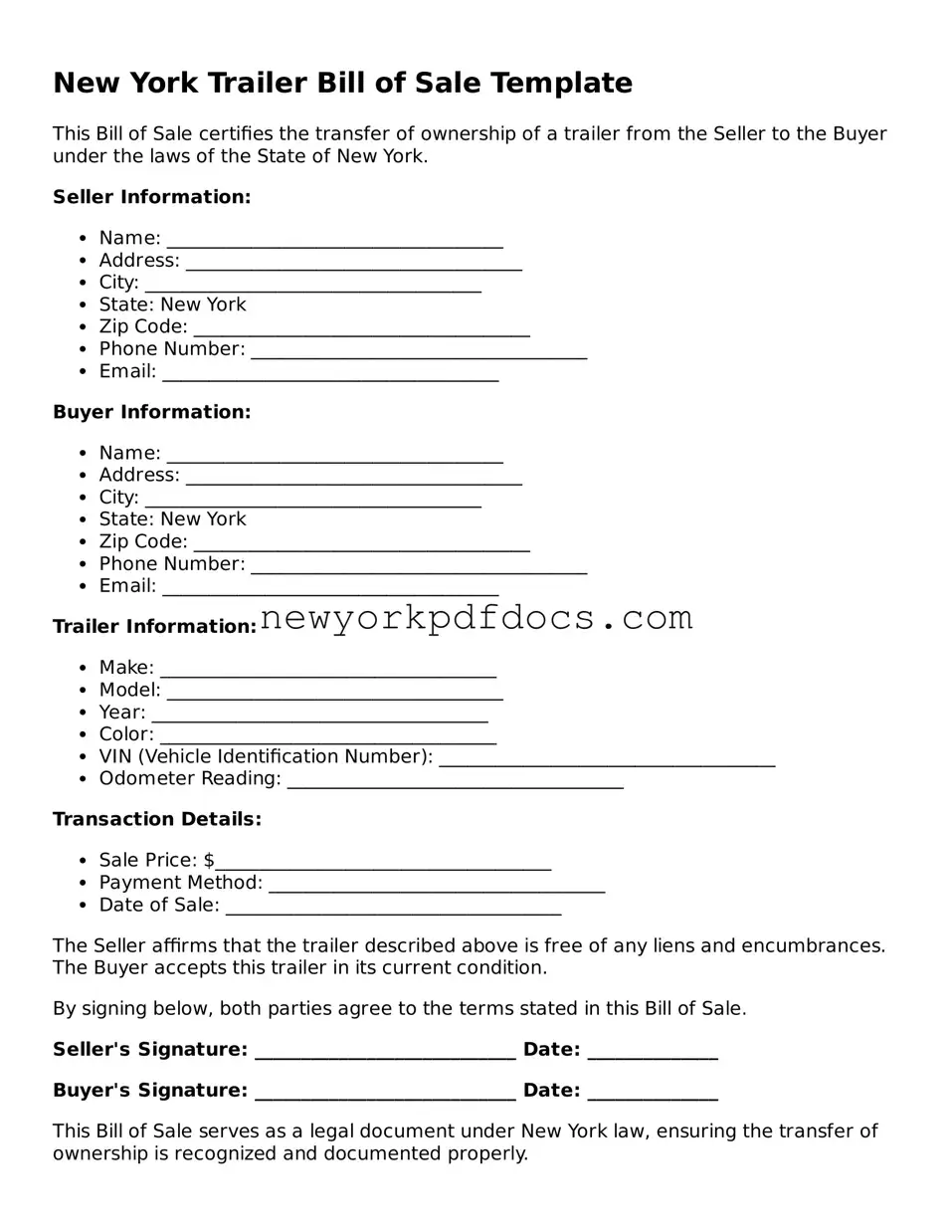Valid Trailer Bill of Sale Document for New York
The New York Trailer Bill of Sale form is a legal document used to record the sale of a trailer in the state of New York. This form serves as proof of ownership transfer between the seller and the buyer, ensuring that both parties have a clear record of the transaction. Understanding the importance of this document can help facilitate a smooth sale process while protecting the rights of both individuals involved.
Open My Document Now

Valid Trailer Bill of Sale Document for New York
Open My Document Now
Your form isn’t finalized yet
Edit, save, and download Trailer Bill of Sale online with ease.
Open My Document Now
or
⇓ Trailer Bill of Sale PDF
